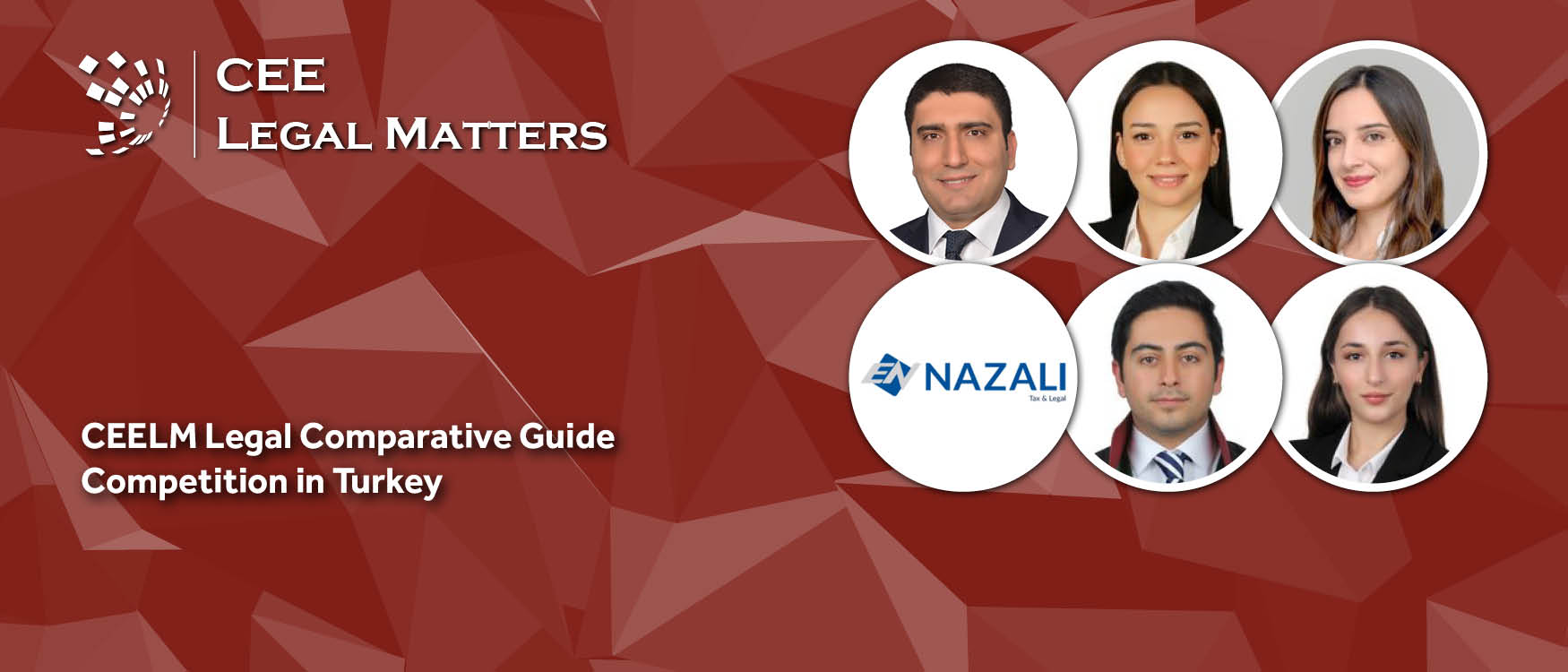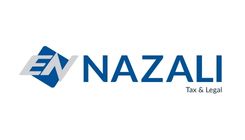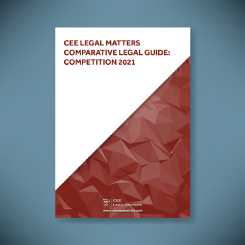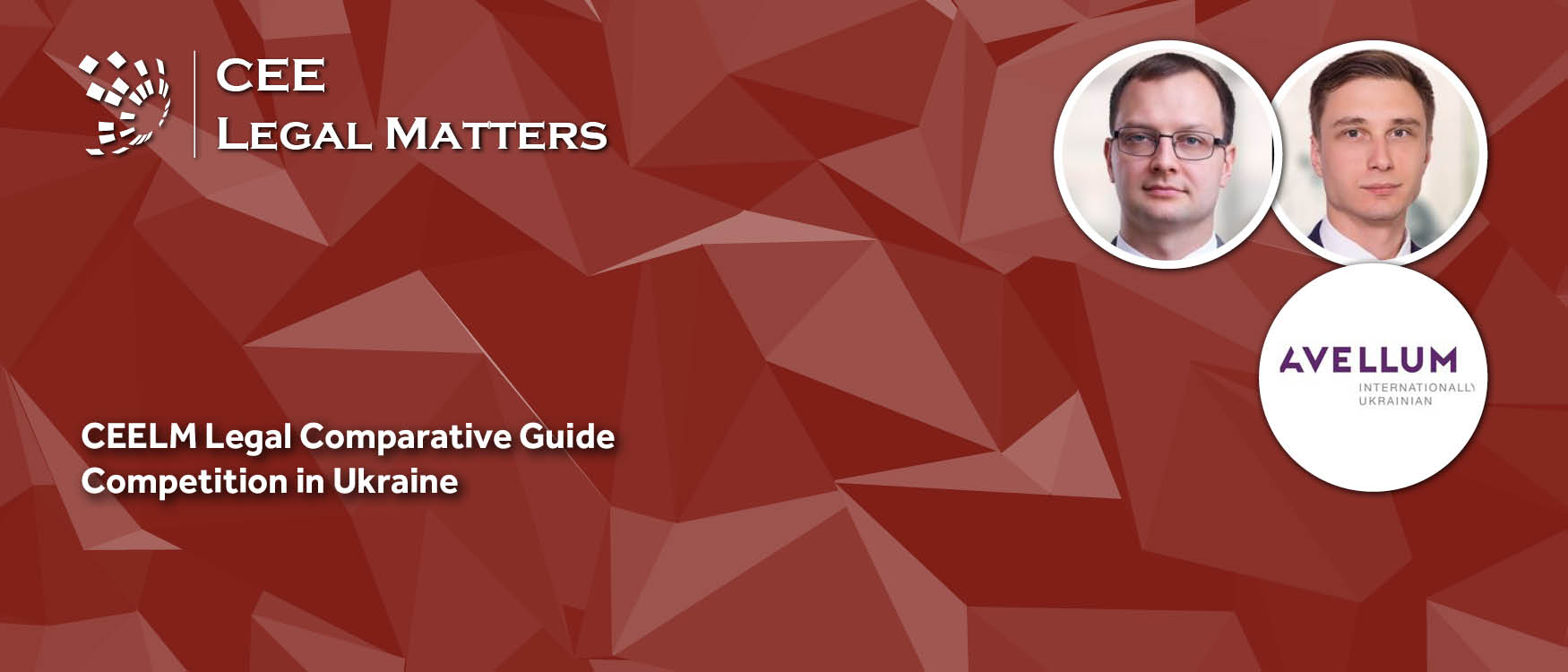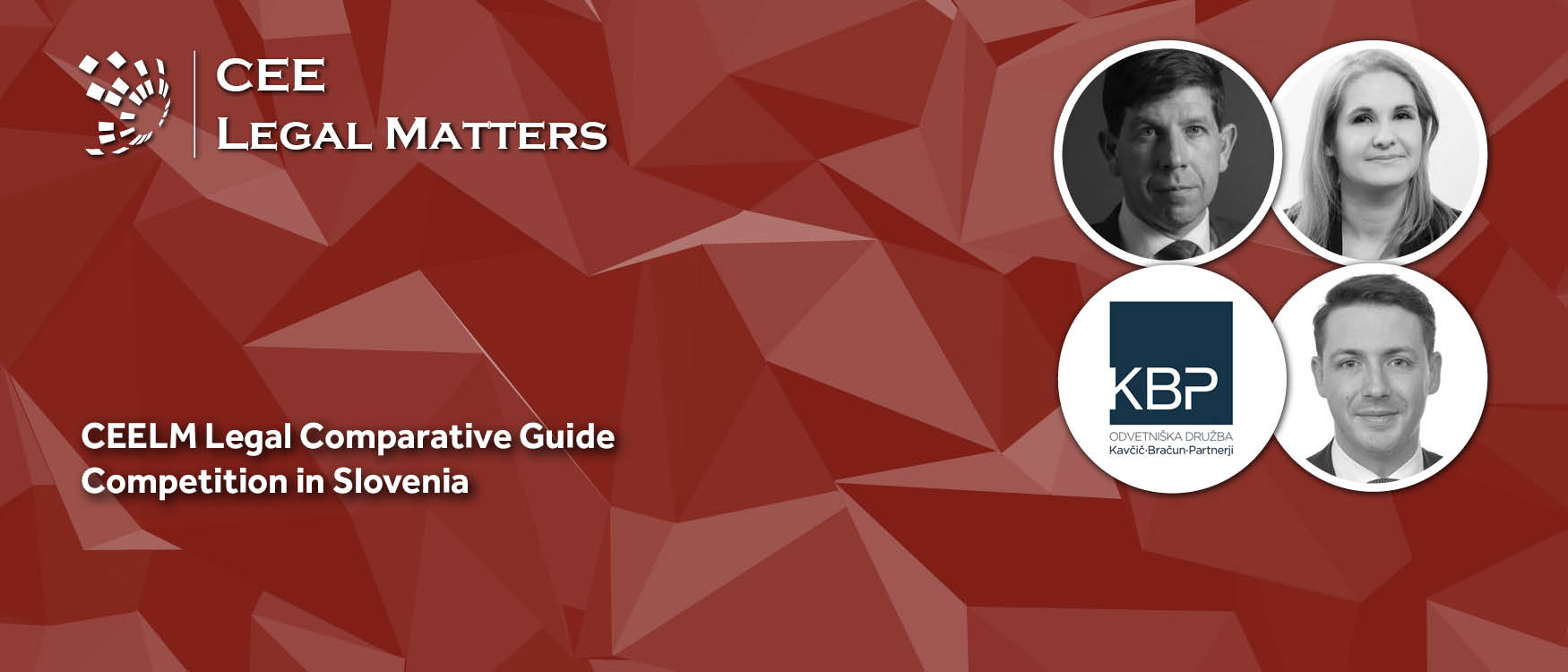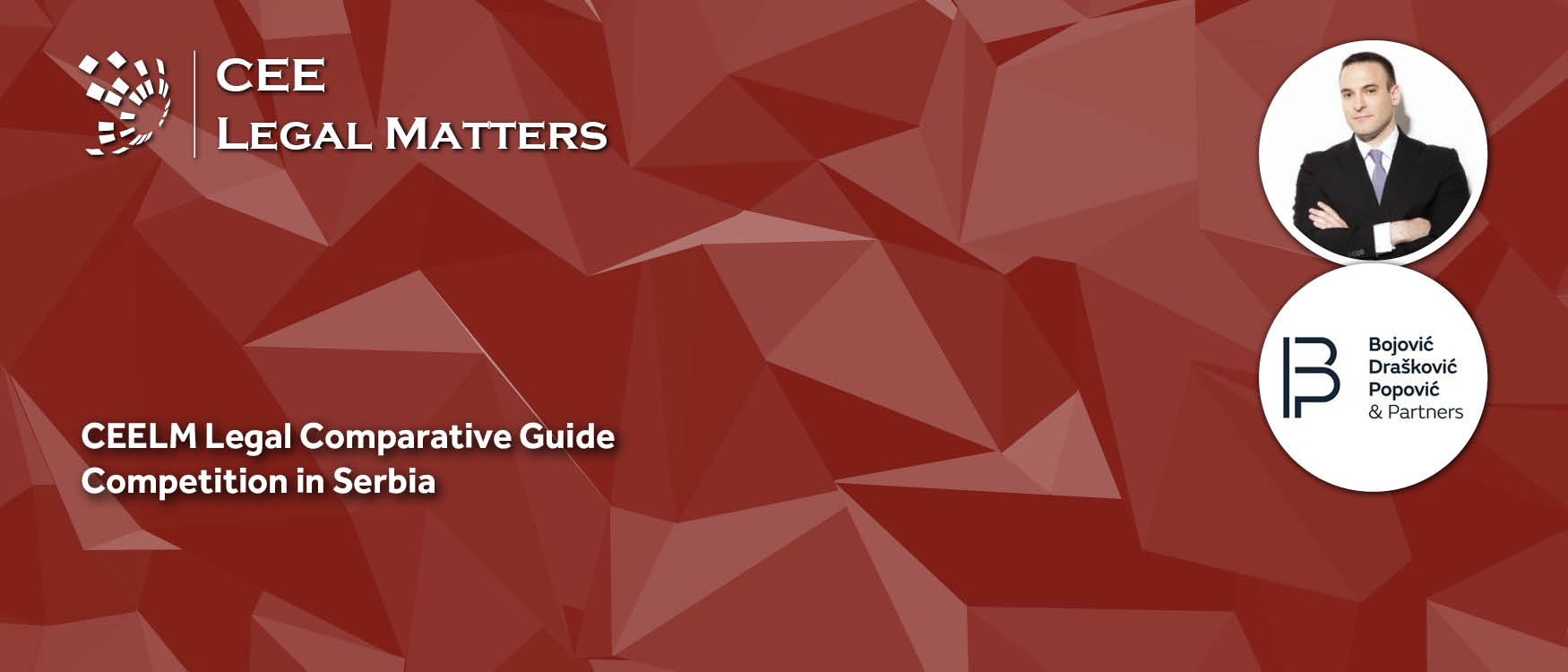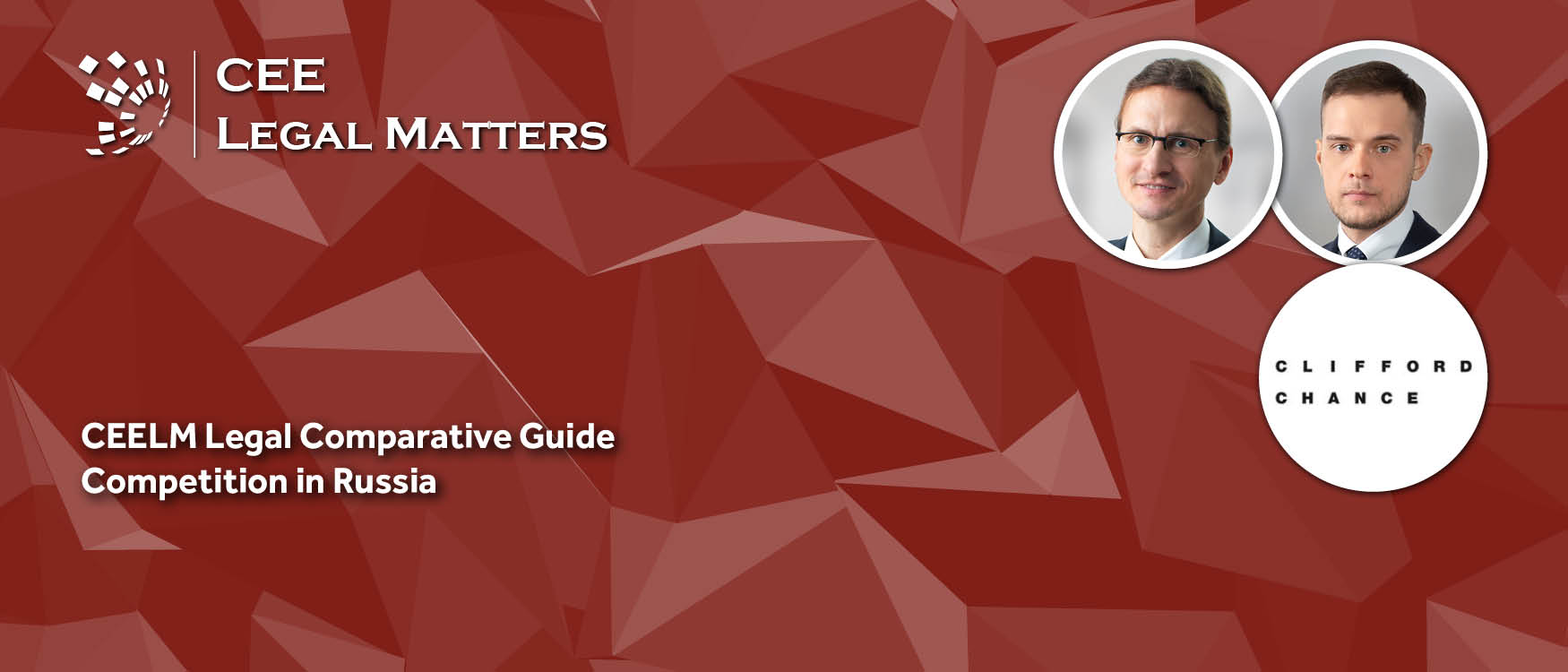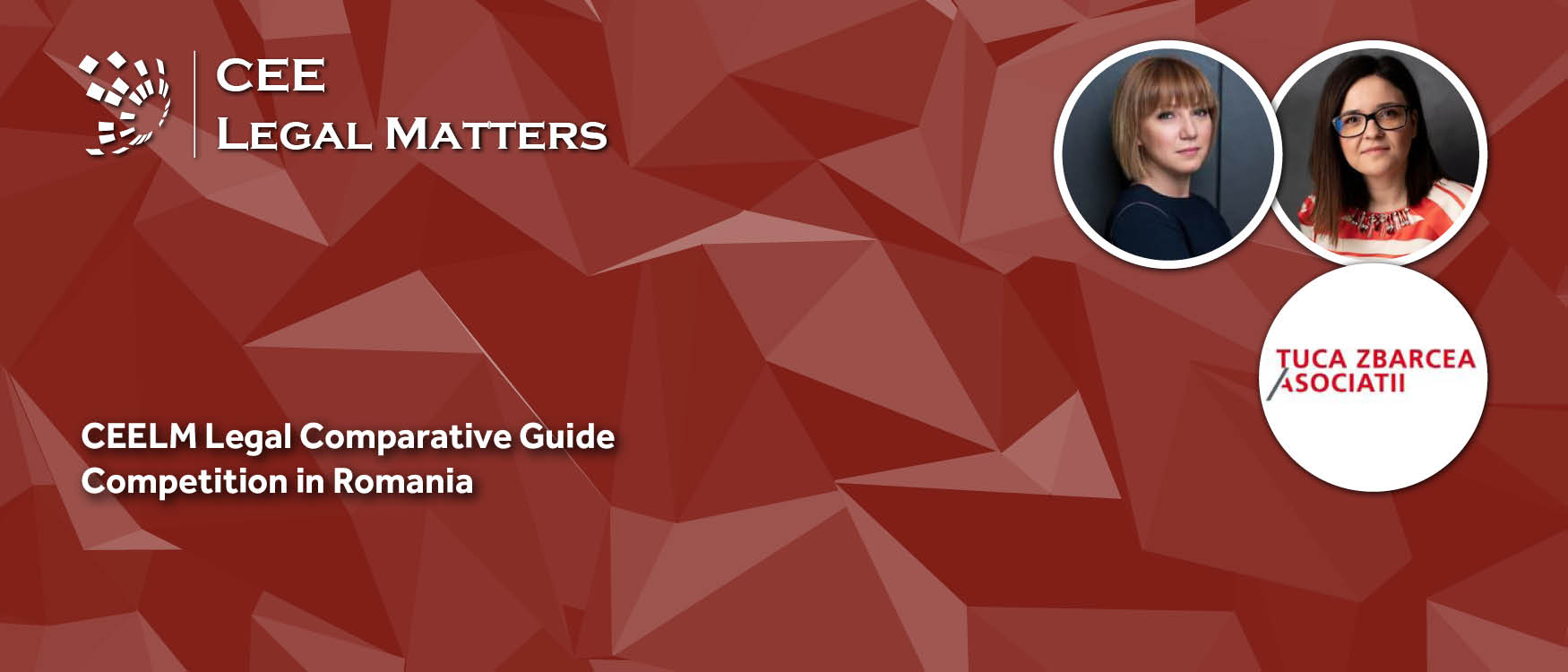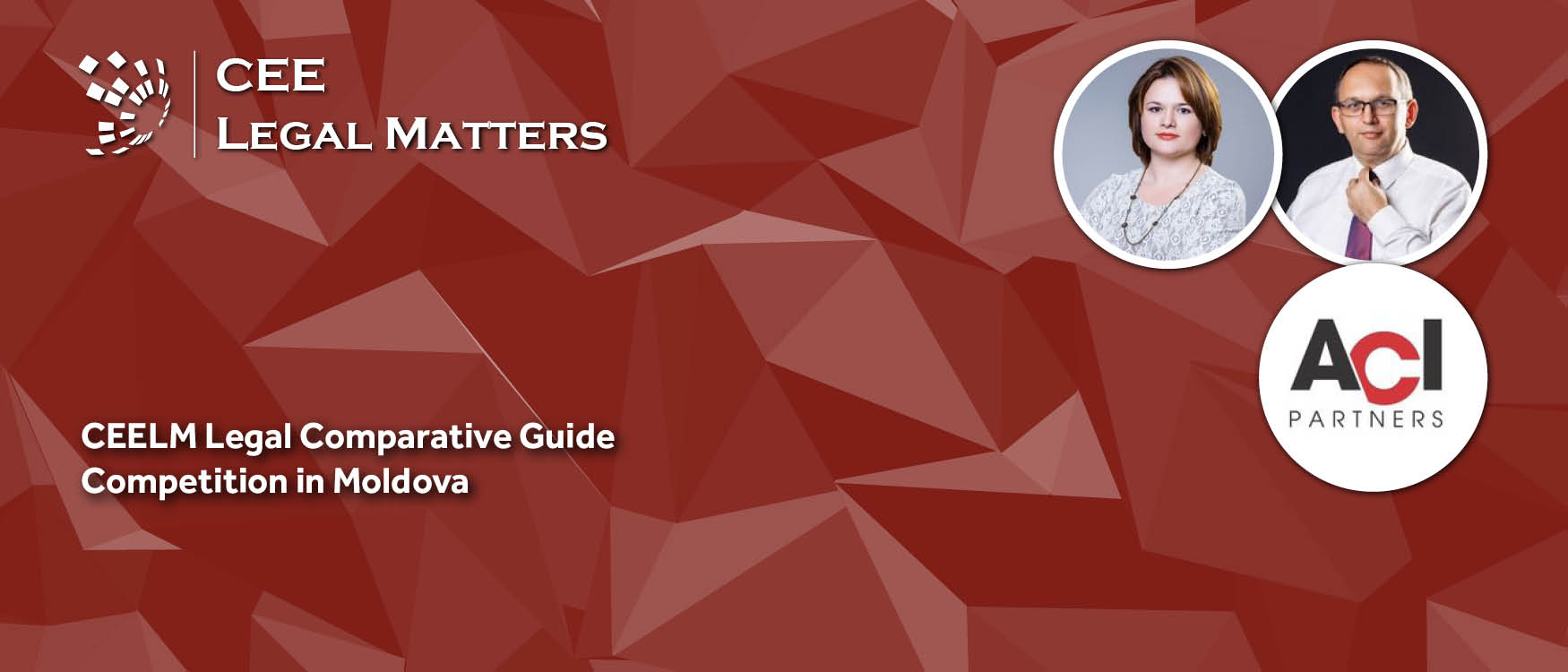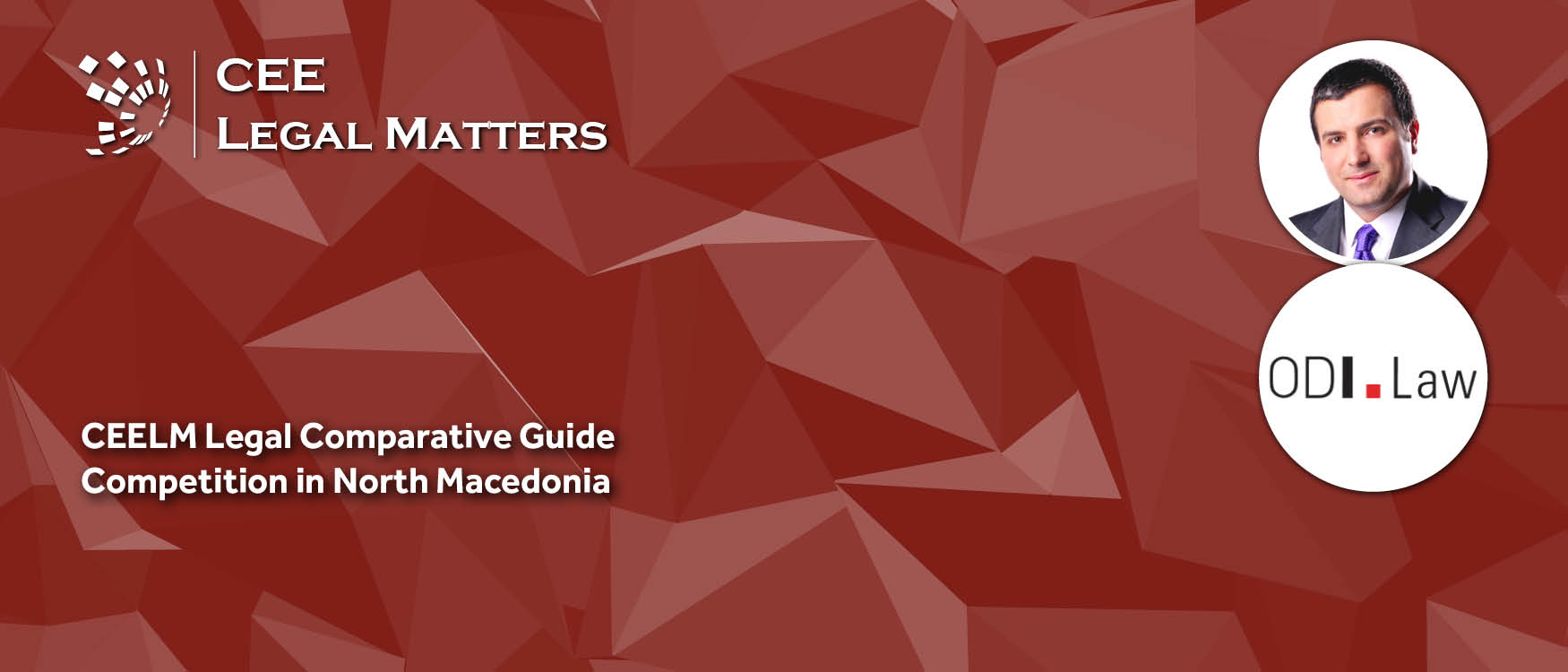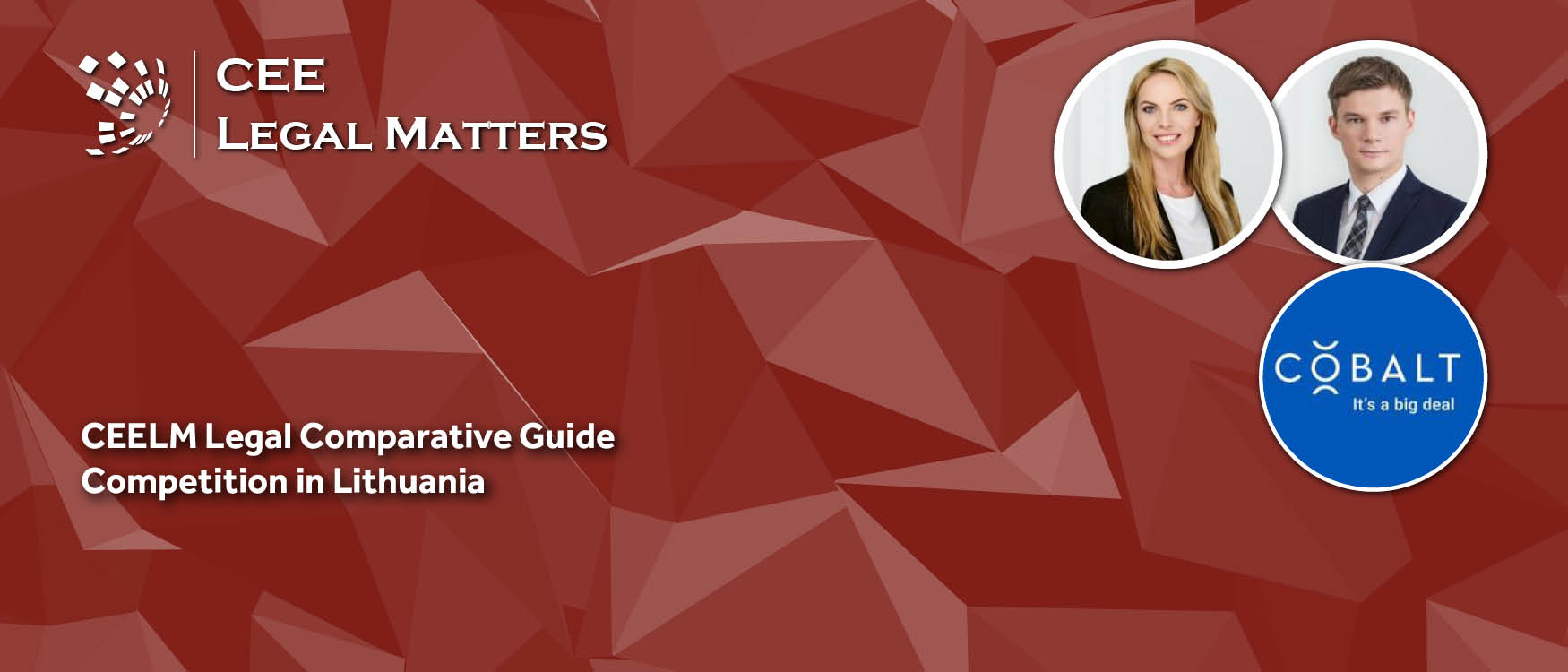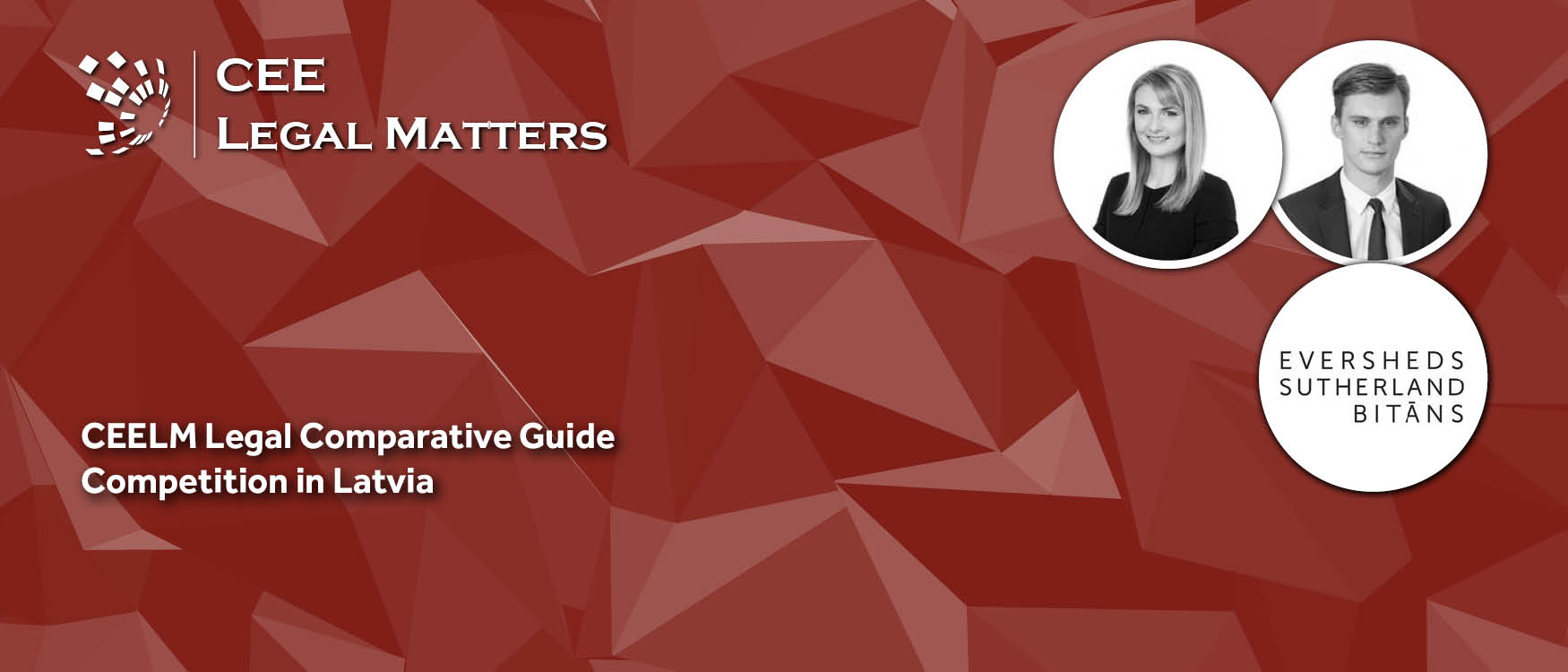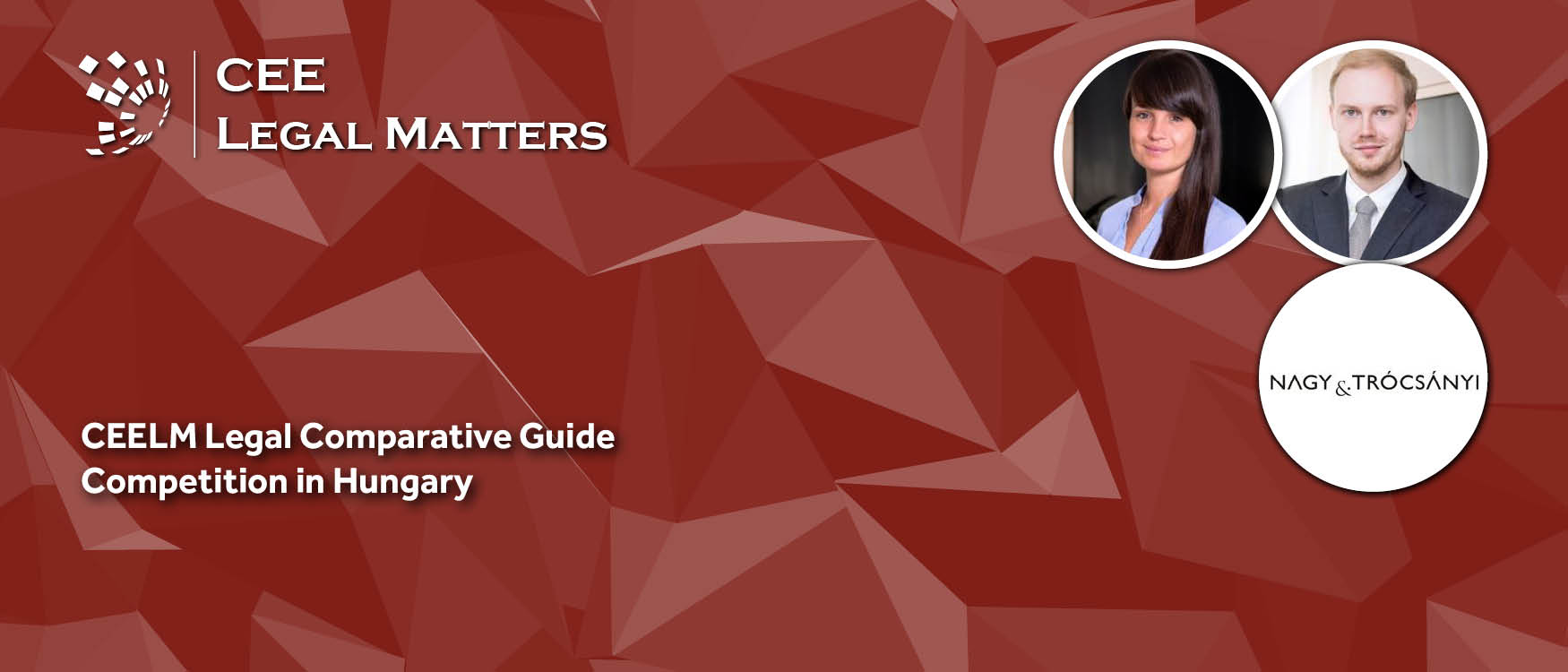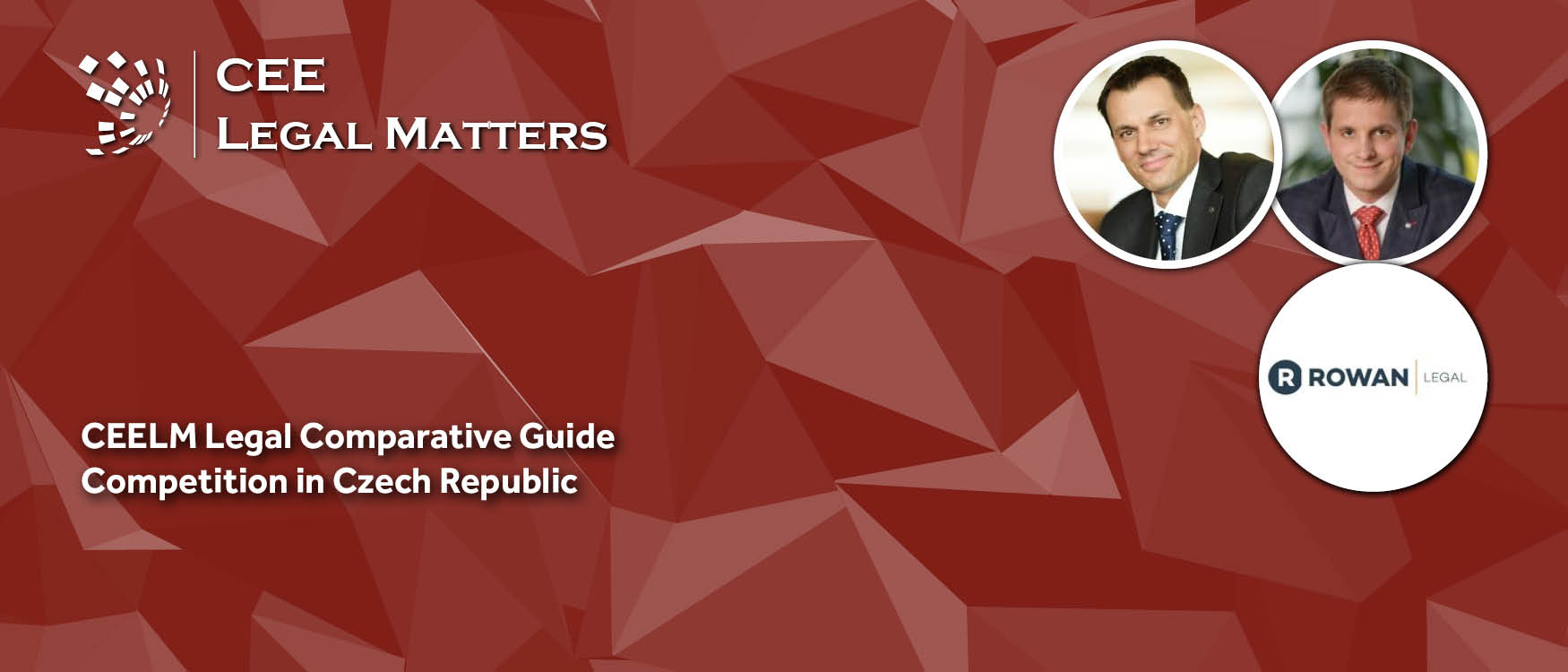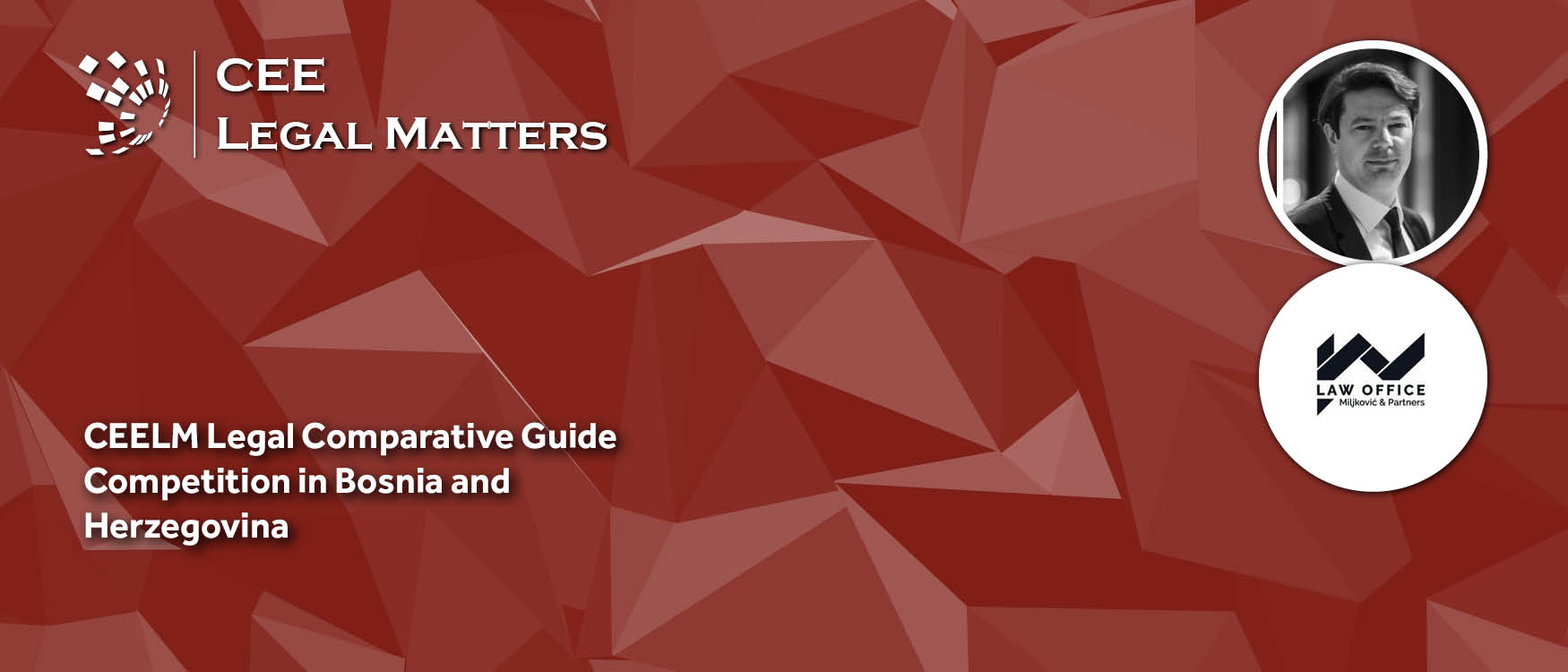Contributed by Nazali Tax & Legal.
1. What are the main competition-related pieces of legislation in Turkey?
The basis of Turkish competition law practices is Act No. 4054 on the Protection of Competition and secondary legislation prepared based on this act. The main provisions of competition law in Turkey are Articles 4, 5, 6, and 7 of Act No. 4054. Articles 4, 5, and 6 of the Law regulate the horizontal and vertical agreements between undertakings and the exemption regime. In addition to these, Article 7 determines the rules regarding mergers and acquisitions. Accordingly, agreements and concerted practices between undertakings, and decisions and practices of associations of undertakings which have as their object or effect or likely effect the prevention, distortion, or restriction of competition directly or indirectly in a particular market for goods or services are illegal and prohibited (Article 4). Additionally, the abuse by one or more undertakings of their dominant position in a market for goods or services within the whole or a part of the country on their own or through agreements with others or concerted practices is illegal and prohibited (Article 6). In addition to these two articles, it is illegal and prohibited for one or more undertakings to merge, or for an undertaking or a person to acquire – except by inheritance – assets, or all or part of the partnership shares, or instruments conferring administrative rights over another undertaking, where these would result in a significant lessening of effective competition within a market for goods or services in the entirety or a portion of the country, particularly in the form of creating or strengthening a dominant position (Article 7).
The powers of the Turkish Competition Board are designed in Articles 14 and 15 of Act No. 4054, the jurisdiction of the authority geographically in Article 2, and administrative fines in Articles 16 and 17. Accordingly, the Turkish Competition Authority (TCA) has a broad power to request all kinds of information and documents from undertakings and to carry out on-site inspections. The geographical scope of the TCA has been determined as the borders of the Republic of Turkey. On the other hand, administrative fines vary depending on the type, gravity, and duration of the violation but are determined as 10% of the annual turnover of the undertakings at most.
Secondary legislation has been prepared in line with the above introductory provisions of Act No. 4054. This secondary legislation is divided into communiques, regulations, and guidelines. In this context, the secondary legislation in force, prepared in line with Act No. 4054, consists of the following communiques, regulations, and guides:
Communiques:
- Communique On Agreements, Concerted Practices and Decisions And Practices Of Associations Of Undertakings That Do Not Significantly Restrict Competition (Communique No: 2021/3)
- Communique on the Commitments to Be Offered in Preliminary Inquiries And Investigations Concerning Agreements, Concerted Practices And Decisions Restricting Competition, And Abuse Of Dominant Position (Communique No: 2021/2)
- Communique on the Increase of The Lower Thresholds for Administrative Fines Specified in Paragraph 1, Article 16 Of the Act No 4054 On The Protection Of Competition, To Be Valid Until 31/12/2020
- Communique On the Payments to Be Made by Joint-Stock and Limited Companies Pursuant to the Act No 4054 (Communique No: 2017/4)
- Block Exemption Communique on Vertical Agreements in The Motor Vehicles Sector (COMMUNIQUE NO. 2017/3)
- Block Exemption Communique on Research and Development Agreements (Communique No: 2016/5)
- Block Exemption Communique on Specialization Agreements (Communique No: 2013/3)
- Communique On the Procedures and Principles To Be Pursued In Pre-Notifications And Authorization Applications To Be Filed With The Competition Authority In Order For Acquisitions Via Privatization To Become Legally Valid (Communique No: 2013/2)
- Communique on the Application Procedure for Infringements of Competition (Communique no 2012/2)
- Communique Concerning the Mergers and Acquisitions Calling for the Authorization of the Competition Board, No:2010/4
- Communique on the Regulation of the Right of Access to the File and Protection of Trade Secrets (Communique No: 2010/3)
- Communique on Hearings Held vis-a-vis the Competition Board Communique No: 2010/2
- Block Exemption Communique in Relation to the Insurance Sector (Communique No: 2008/3)
- Block Exemption Communique on Technology Transfer Agreements (Communique No: 2008/2)
- Block Exemption Communique on Vertical Agreements (Communique No: 2002/2)
- Communique on the Conclusion of the Organization of the Competition Authority (Communique No. 1997/5)
Regulations:
- Regulation on the Settlement Procedure
- Regulation on Promotion and Title Change of Competition Authority Employee
- Regulation on Competition Authority Professional Employee
- Regulation on Fines to Apply in Cases of Agreements, Concerted Practices and Decisions Limiting Competition, and Abuse of Dominant Position
- Regulation on Active Cooperation for Detecting Cartels (Active Cooperation/Leniency Regulation)
- Regulation on Competition Authority Disciplinary Supervisors
- Competition Authority Budget and Accounting Regulation
- Competition Authority Tender Regulation
- Regulation on the Working Procedures and Principles of the Competition Authority
Guidelines:
- Guidelines on the Examination of Digital Data during On-Site Inspections
- Guidelines On Vertical Agreements
- Competition Assessment Guidelines
- Guidelines Explaining the Block Exemption Communique on Vertical Agreements in the Motor Vehicles Sector,
- Guidelines on the Application of Articles 4 and 5 of the Act no 4054 on the Protection of Competition to Technology Transfer Agreements
- Guidelines On the Explanation of The Regulation On Active Cooperation For Detecting Cartels
- Guidelines on the Assessment of Abusive Conduct by Undertakings with Dominant Position
- Guidelines on the General Principles of Exemption
- Guidelines on Cases Considered as a Merger or an Acquisition and the Concept of Control
- Guidelines on the Assessment of Non-Horizontal Mergers and Acquisitions
- Guidelines on the Assessment of Horizontal Mergers and Acquisitions
- Guidelines on Horizontal Cooperation Agreements
- Guidelines on Remedies That are Acceptable by the Turkish Competition Authority in Merger/Acquisition Transactions
- Guidelines On Undertakings Concerned, Turnover and Ancillary Restraints in Mergers and Acquisitions
- Guidelines on the Voluntary Notification of Agreements, Concerted Practices and Decisions of Associations of Undertakings
- Guidelines on the Definition of Relevant Market
- Guidelines on Certain Subcontracting Agreements Between Non-Competitors
In Turkish competition law, Act No. 5236 on Misdemeanors is taken as a basis for the statute of limitations. Accordingly, the statute of limitations for competition law investigations is eight years. Any anti-competitive practice that has taken place in the last eight years can be audited and penalized by the TCA.
Due to the proximity of competition investigations to criminal law investigations, in line with the approach of the European Union Court of Justice, competition investigations in Turkey should also act in accordance with the basic principles of criminal law (presumption of innocence, the principle of legality in crime and punishment, etc.) Decisions taken by TCA as a result of an investigation to the contrary may be subject to annulment in the administrative jurisdiction in this context.
Finally, since the decisions taken by TCA are subject to judicial review and fall within the administrative jurisdiction, Act No. 2577 on the Administrative Jurisdiction Procedures, which regulates the procedures for appealing the decisions taken by the competition authority to the courts, gains importance in the judicial dimension of competition law. Appeals to the courts and higher courts against the decisions of the competition authority must be made in accordance with the rules outlined in this law.
2. Are there any notable recent (last 24 months) updates of the Turkish competition legislation?
The long-lasting bill of Law on The Act on the Protection of Competition (The Competition Act) was ratified by the Turkish Parliament on June 16, 2020. This amendment is the most extensive reform of the antitrust enforcement system since the enactment of the Competition Act in 1994. The most significant changes are explained below:
Legal Uncertainties Regarding the Exemption Regime Has Been Clarified:
The exemption regime had already been changed in the 2005 amendment and the application for exemption has become optional since then. The current amendment aims to reinforce and clarify that the official application is optional and that undertakings do have the option of submitting an application when they are not clear about the legality of conduct or when they seek legal certainty.
Accordingly, the first paragraph of Article 5, which defines the exemption regime in Act No. 4054, has been changed with the following paragraph having been added to the article after the first paragraph.
“In case all the terms listed below exist, agreements, concerted practices between undertakings, and decisions of associations of undertakings are exempt from the application of the provisions of Article 4:
a) Ensuring new developments and improvements, or economic or technical development in the production or distribution of goods and in the provision of services,
b) Benefitting the consumer from the abovementioned,
c) Not eliminating competition in a significant part of the relevant market,
d) Not limiting competition more than what is compulsory for achieving the goals set out in sub-paragraphs (a) and (b).
The undertakings or associations of undertakings may apply to the Authority to determine by the Board that the agreement, concerted action or decisions of associations of undertakings under the Article 4 meets the exemption conditions.”
This new design of the article clarifies the “optionality” of exemption application and legal uncertainties are eliminated.
Test Change in the Merger-Acquisition Control
So far, the TCA has been carrying out merger control based on the dominance test. The current amendment introduces the “significant impediment of effective competition test” (SIEC test) to the merger control regime and a hybrid model is being built. Article 7 of the act that defines the merger control is amended to:
“Merger by one or more undertakings, or acquisition by any undertaking or person from another undertaking-except by way of inheritance-of its assets or all or a part of its partnership shares, or of means which confer thereon the power to hold a managerial right, which would result in significant lessening of competition, especially create or strengthen a dominant position of one or more undertakings, in a market for goods or services within the whole or a part of the country, is illegal and prohibited.”
Accordingly, more prohibition decisions are expected in merger cases.
Structural Measures for Termination of the Violation:
Article 9 of the act contains provisions for the termination of the violation and interim measures. The current design of the article allows the authority to impose behavioral measures along with the final violation decision. The current amendment empowers the authority to impose structural measures when necessary to terminate a violation. Accordingly, the first paragraph of Article 9 of the act has been changed to:
“If the Board determines that the article 4, 6 or 7 of the Act has been violated upon notice, complaint or the request of the Ministry or ex officio, notifies the relevant undertakings or associations of undertakings about the behaviors that must be followed or avoided for the establishment of competition, and/or structural measures in the form of transferring certain activities or partnership shares or assets. Behavioral and structural measures should be proportionate with the violation and necessary for the effective termination of the violation. Structural measures may applied only in cases where the behavioral measures introduced earlier do not yield results. If it is determined by the final decision that the behavioral measures do not yield results, at least 6 months are given to the relevant undertakings or associations of undertakings to comply with the structural measure.”
Thus, it has been clarified that in cases where the competition authority detects violations, it may take structural measures as well as behavioral measures.
Dawn Raid Powers Regarding Digital Documents of Digital Media
Paragraph (a) Article 15 of the act has been changed to:
“May examine its Notebooks, any data and documents kept in the physical and electronic media and information systems, and take their copies and physical samples.”
Accordingly, The TCA’s dawn raid powers regarding electronic data and digital media have been clarified.
De Minimis Application
De Minimis has been introduced to the act as such:
“The Board, except for hardcore violations such as price determination, territory or customer sharing, and restriction of supply among competitors based on criteria such as market share and turnover, may not initiate an investigation against the decisions and actions of the associations of undertakings, agreements, and concerted practices that do not significantly restrict competition in the market. The procedures and principles regarding the implementation of this paragraph are determined by the communique issued by the Board.”
With the implementation of this practice, the competition authority has been granted discretion not to open an investigation in violations other than certain types of severe violations.
Settlement and Commitment
The title of Article 43 of the act has been changed to "Starting an Investigation, Commitment and Settlement" and the following paragraphs have been added to it:
“A commitment may be submitted by the relevant undertakings or associations of undertakings to eliminate the competition concerns that arise under Article 4 or 6 during a preliminary investigation or investigation in progress. If the Board considers that the competition concerns can be resolved through these commitments, it may be decided not to open an investigation or to terminate the investigation by making these commitments binding for the relevant undertakings or associations of undertakings. Commitment are not accepted for hardcore violations such as price determination, territory or customer sharing or restriction of supply among competitors. The procedures and principles regarding the implementation of this paragraph are determined by the communique issued by the Board.
After the Board makes a decision according to the third paragraph of this Article, it may initiate an investigation in the following cases:
a) There is a substantial change in any element that constitutes the basis for decision.
b) The related undertakings or associations of undertakings violate the commitments.
c) The decision has been based on incomplete, incorrect or misleading information provided by the parties.
After the investigation is initiated, the Board may initiate the procedure of settlement, at the request of those concerned or ex officio, taking into account the procedural benefits arising from the rapid completion of the investigation process and differences of opinion regarding the existence or scope of the violation. The Board may reconcile with undertakings or associations of undertakings that have undertaken an investigation and accepted the existence and scope of the violation before the notification of the investigation report.
As a result of the settlement procedure, up to twenty-five percent reduction in administrative fines can be applied. The reduction in administrative fines in accordance with this article does not prevent the reduction under the sixth paragraph of article 17 of the Law of Misdemeanor.
The Board gives the parties a certain time to submit a declaration of settlement, through which they accept the violation and explain the scope of the violation. Notifications made after the given period are not considered. The investigation is ended with a final decision involving a violation decision and the administrative fine.
In the event that the process results in settlement, the administrative fines and the matters included in the settlement text cannot be the subject of case by the parties.
Other procedures and principles regarding reconciliation are determined by the regulation issued by the Board.”
Settlement and commitment institutions will ensure the procedural economy in the investigations carried out and reestablish competition in the markets as early as possible.
Within the framework of the above-mentioned amendment, (i) “Regulation on the Settlement Procedure”, (ii) “Communique On Agreements, Concerted Practices and Decisions and Practices of Associations of Undertakings That Do Not Significantly Restrict Competition”, and (iii) “Communique On The Commitments To Be Offered in Preliminary Inquiries And Investigations Concerning Agreements, Concerted Practices And Decisions Restricting Competition, and Abuse Of Dominant Position” have been prepared and entered into force in Turkey.
In addition, pursuant to the amendment of the Turkish Competition Law, the Guideline on Examining Digital Data During On-Site Inspection has been published on October 8, 2020. Accordingly,
- TCA inspectors are authorized to examine information systems such as servers, desktops/laptops, portable devices, and storage devices such as CD, DVD, USB, external hard disks, backup records, or/and cloud services. During the inspection, forensic tools can be used to search and copy digital data and retrieve deleted data in order to ensure that the authenticity and integrity of the data;
- mobile communication devices (mobile phones, tablets, etc.) are subject to inspection. Case officers shall conduct a quick review on each device and determine whether it is completely personal or include business. Any device that is found to be completely personal, is not inspected in detail. If deemed necessary any personal data can be copied to storage devices and taken;
- case officers are authorized to make examinations in digital environments containing all kinds of data belonging to the undertaking. During the examination, it is the responsibility of the undertaking to prevent any interference with the data and the environment where the data is kept. The undertaking is obliged to provide full and active support on matters requested by the inspectors;
- if deemed necessary by the inspectors, the copies of the digital data shall be partially or completely copied to separate data storage devices using forensic tools and "hash" values. Hash is a mathematical computation method used to verify the integrity of digital files;
- as a rule, the examination should be completed at the premises of undertaking. However, if it is deemed necessary, case officers may decide to continue the examination in the forensic laboratory of the authority. In this case data is recorded in three separate data collectors and one is left to the undertaking;
- in any case, the analysis of digital data obtained from mobile phones is completed at the undertaking’s premises; and
- in the event that the digital data obtained throughout the inspection contains trade secrets, the Communique on the Regulation of the Right to Access to the File and Protection of Trade Secretes will be operative.
3. What are the main concerns of the national competition authority in terms of agreements between undertakings? How about the sanctioning record of the authority?
The main concerns of the Competition Authority in terms of horizontal agreements can be listed as follows:
In Terms of Standardization Agreements Between Competitors
- First, if undertakings were to engage in anti-competitive discussions in the context of standard-setting, this could reduce or eliminate price competition in the markets concerned, thereby facilitating a collusive outcome in the market.
- Second, standards that set detailed technical specifications for a product or service may limit technical development and innovation. In addition, standards that require the exclusive use of a particular technology for a standard or which force the members of the standard-setting organization to exclusively use a particular standard, may lead to the same effect. The risk of limiting innovation is increased if one or more undertakings are excluded from the standard-setting process without an objective reason.
- Standardization agreements may lead to restrictive effects on competition by preventing certain undertakings from obtaining effective access to the results of the standard-setting process, that is to say, to the technical specifications and/or to the intellectual property rights essential for the implementation of the standard. In case an undertaking's access to the results of the standard is either completely prevented or is tied to prohibitive or discriminatory terms, there is a risk of creating restrictive effects on competition
In Terms of Exchange of Information Between Competitors
- The exchange of competition-sensitive information can result in restrictive effects on competition by artificially increasing transparency in the market, thereby facilitating coordination of competitive behavior between undertakings. This can occur through different channels.
- Information exchange may lead to undertakings arriving at common and collusive expectations concerning the uncertainties in the market. Thus, undertakings can then reach a common understanding in order to coordinate their competitive behavior, without an explicit agreement. Information exchange in this way may lead to a collusive outcome in the market. Exchange of information about the plans of the undertakings concerning future conduct is the most convenient means of such an understanding.
- Through the use of a monitoring mechanism, information exchange can render the market transparent and allow a collusive outcome in the market or improve the sustainability of such conduct (internal stability) by making it easier for undertakings to identify any practice of their competitors that is in violation of an anti-competitive agreement between them and to retaliate against such practices. Such a monitoring mechanism may be created by the exchange of current or historical data.
- Information exchange can lead to the exclusion of competitors who are not parties to the agreement (external stability) by improving the sustainability of collusive outcomes. When the market becomes sufficiently transparent due to exchanges of information, undertakings parties to the agreement can be informed on when and how potential competitors will enter the market, target the new entrants, and, as addressed in the next section, foreclose the market to potential competitors.
In Terms of Research and Development Agreements
- R&D cooperation can restrict competition in various ways. First, it may reduce or slow down innovation, leading to fewer or lower quality products coming to the market.
- Secondly, R&D cooperation may lead to increasing prices by significantly reducing competition between the undertakings which are not parties to the agreement in product or technology markets, or by making coordination of competitive conduct in those markets possible.
- Also, R&D cooperation may lead to market foreclosure for competitors. However, a market foreclosure effect may only arise if at least one of the parties holds, if not a dominant position, significant market power concerning a key technology and derives exclusive benefits from the results of the R&D efforts of the parties.
In Terms of Production Agreements
- Production agreements, and in particular production joint ventures, may cause a restriction of competition by leading the parties to align output volumes, product quality, product price, and other competitively important parameters. This may happen even if the parties market the products independently.
- Production agreements may lead to higher prices or reduced output, product quality, product variety, or innovation, that is to say, to a collusive outcome, as a result of the parties' coordinating their competitive behavior as suppliers.
- Production agreements may furthermore lead to the foreclosure of related markets to other undertakings. For instance, by gaining enough market power, parties engaging in joint production activities in the upstream market may be able to raise the price of a key component for a downstream market, and thus they could use the joint production activity to raise the costs of their competitors downstream and, ultimately, force these competitors off the market. This, as a result, could have adverse effects on the consumers by allowing the parties to increase their market power downstream and to sustain prices above the competitive level, or through other ways.
In Terms of Joint Purchasing Agreements
- Joint purchasing arrangements may lead to restrictive effects on competition in the purchasing and/or downstream selling markets, such as an increase in product prices, reduction in output, product quality and variety or innovation, market allocation, or foreclosure of the market to other possible purchasers.
- If downstream competitors purchase a significant part of their products together, the incentive for price competition on the selling markets may be considerably reduced.
- In case the parties have a significant degree of market power on the purchasing market (buying power), there is a risk that they may force suppliers to reduce the variety or quality of products they produce. This situation may bring about certain restrictive effects, such as reduction in quality, lessening of innovation efforts, or ultimately sub-optimal amount of supply.
- Buying power of the parties to the joint purchasing arrangement could be used to foreclose competing purchasers by limiting their access to efficient suppliers. This is more likely where there are a limited number of suppliers and there are barriers to entry on the supply side of the upstream market.
- In general, however, joint purchasing arrangements are less likely to give rise to competition concerns if the parties do not have market power in the selling markets.
In Terms of Commercialization Agreements
- Commercialization agreements can lead to restrictions of competition in several ways. First of all, commercialization agreements may lead to price-fixing.
- Secondly, in commercialization agreements, the parties may restrict supply by determining the production volume to be put on the market.
- Thirdly, commercialization agreements may become a means for dividing the markets or allocating customers, for example in cases where the parties’ production facilities are located in different geographic markets or when the agreements are reciprocal.
- Finally, such agreements may also result in a collusive outcome by leading to an exchange of competitively sensitive information related to subjects falling within or outside the scope of the cooperation or by leading to a commonality of costs.
Recent Investigation for Horizontal Infringements:
Due to the exchange rate fluctuations in Turkey and the effects of the COVID-19 pandemic on the markets, the TCA has recently focused on three industries: (I) FMCG retailing, (ii) animal feed, and (iii) fertilizer sectors. The authority conducts investigations on horizontal issues, such as hub & spoke applications in the FMCG retailing sector and information exchange applications in the animal feed and fertilizer sector. None of these investigations have yet been concluded.
In addition to the main concerns of the TCA in terms of the agreements mentioned above, one of the horizontal agreements that the authority has given more importance to and started investigations in the last period are no-poaching and wage-fixing agreements made in the field of human resources. TCA is expected to issue a guideline in this area.
In terms of sanctions as the last point, TCA has carried out many investigations and penalty decisions regarding horizontal agreements that are found to restrict competition. In addition to the administrative fines, the authority has the power to take behavioral and structural measures. Although behavioral measures are frequently used, the number of decisions that contain structural measures is very limited.
The number of horizontal infringement decisions taken by the TCA in recent years is as follows:
- First 6 months of 2021: 12
- 2020: 31
- 2019: 23
- 2018: 36
- 2017: 35
- 2016: 26
- 2015: 32
- 2014: 67
- 2013: 71
4. Which competition law requirements should companies consider when entering into agreements concerning their activities on Turkey’s territory?
In Turkey, competition law rules are set in Act No. 4054 on the Protection of Competition. Similar to global practice, there are three main rules regarding the anti-competitive behavior of undertakings and in addition to that one exemption method is arranged under Turkish competition law. These rules will be explained with their purposes below.
- Agreements, Concerted Practices, and Decisions Limiting Competition (Article 4):
Article 4 prohibits agreements and practices between undertakings that have the effect to prevent, restrict, or distort competition. According to the article, the term agreement is used to refer to all kinds of compromise or accord to which the parties feel bound, even if these do not meet the validity conditions set in civil law and it is not important whether the agreement is written or oral. Even if the existence of an agreement between the parties cannot be established, direct or indirect relations between undertakings that replace their own independent activities and ensure coordination and practical cooperation are prohibited if they lead to the same result. Thus, it is intended to prevent the undertakings from legitimizing acts limiting competition via fraud against the law. Most of the time, in order to deal with their common problems, undertakings form associations among themselves that may or may not have a legal personality. These associations can take decisions that serve to generate more earnings for their members by preventing competition between the members. Such behaviors are also prohibited.
Vertical or horizontal agreements can restrict competition. It is accepted that horizontal agreements have competition distorting effects per se since they are between competitors.
In a legal regime where agreements restricting competition are prohibited, these agreements are generally made in secret and proving their existence is quite difficult, sometimes even impossible. For this reason, in some cases, it can be accepted that undertakings are engaged in a concerted practice. Thus, the burden of proof for not being engaged in concerted practice has been passed to the relevant undertakings and the intent was to prevent that the act becomes unworkable due to the difficulty of proof.
- Exemption (Article 5):
Implementation of the prohibition of Article 4 in an absolute manner may have some unwanted consequences. Hence, if the beneficial effects caused are greater than the harmful effects, agreements restricting competition can be exempted from the prohibition of Article 4. For such an exemption to be granted, four conditions listed in the article must exist at the same time. First, the agreement or concerted practice or decisions of an association of undertakings limiting competition must have positive effects on the economy. In case these positive effects are not reflected on the consumer and stay as firm profits, the exemption will not be implemented. The fact that the consumer receives a just share of the benefit created also reveals the social side of competition law. Also, if less limitation on competition can be sufficient to achieve these beneficial effects, the litigious agreements will not benefit from the exemption. Only those competition limitations which are necessary and compulsory for achieving the beneficial effect will be granted an exemption. It is such that, with these limitations, competition must not be eliminated in a significant part of the relevant product market.
Exemption decisions will be made for certain periods and these decisions will be renewable if the specified conditions exist. Thus, the board will be given the opportunity to monitor the changes that may emerge or the developments that may cause a restriction in competition within the relevant market, after the exemption decision has been taken.
Also, the chance to be granted a block exemption is given to the groups of agreements that carry the conditions. Thus, both a legal certainty is secured for these agreements and the beneficial effects of these agreements are brought into the economy.
Besides the block exemption, an individual exemption mechanism also exists. Undertakings can carry out a self-assessment and if their agreement fulfills the requirements, their agreement will be considered valid.
- Abuse of Dominant Position (Article 6):
In terms of competition law, an undertaking’s growth through its own internal dynamics and obtaining a dominant position in various sectors is not an objectionable situation. On the other hand, it is prohibited for undertakings that obtain a dominant position in a market to abuse their position to restrict, prevent, or distort competition in Turkey, or use their position in a way that would cause these effects.
In some cases, the undertaking may gain a dominant position because of the protections provided by law. Especially industrial and trade property rights grant such protection. The use of these rights must in no way serve the purpose of eliminating competition. Most encountered abuse cases in practice are as follows:
a)preventing, directly or indirectly, another undertaking from entering the area of commercial activity, or actions aimed at complicating the activities of competitors in the market;
b)making direct or indirect discrimination between purchasers with equal status by offering different terms for the same and equal rights, obligations, and acts;
c) purchasing another good or service together with a good or service, or tying a good or service demanded by purchasers acting as intermediary undertakings to the condition of displaying another good or service by the purchaser, or imposing limitations with regard to the terms of purchase and sale in case of resale, such as not selling a purchased good below a particular price;
d)conducts which aim to distort competitive conditions in another market for goods or services by means of exploiting financial, technological, and commercial advantages created by dominance in a particular market; or
e) restricting production, marketing, or technical development to the prejudice of consumers.
- Mergers or Acquisition (Article 7):
According to Article 7 of the act, any merger or acquisition that would result in a significant lessening of effective competition within a market for goods or services in the entirety or a portion of the country, particularly in the form of creating or strengthening a dominant position, is prohibited.
Accordingly, parties to a merger should submit an application to the TCA for authorization, if (i) the total turnovers of the transaction parties in Turkey exceed TRY 100 million, and turnovers of at least two of the transaction parties in Turkey each exceed TRY 30 million, (ii) The asset or activity subject to an acquisition, and at least one of the parties of the transaction in merger transactions have a turnover in Turkey exceeding TRY 30 million and the other party of the transactions has a global turnover exceeding TRY 500 million.
5. Does a leniency policy apply in Turkey?
There is a leniency procedure under Turkish competition law. Any leniency application must be submitted before the settlement application. If both leniency and settlement applications are accepted, the parties may benefit from both discounts. With the leniency procedure, a full immunity or reduction from the penalty may be granted if the undertaking meets the conditions.
Under Turkish competition law, the leniency procedure is only applicable to cartels. A cartel is defined, according to the Directive on Active Cooperation to Uncover Cartels dated February 15, 2009, as:
- price determination,
- sharing of customers, suppliers, regions, or trade channels,
- limiting the amount of supply or setting quotas, and
- agreements that restrict competition and/or concerted actions, regarding consensual action in tenders,
between competitors.
The TCA expects that:
- a list of the products affected by the cartel subject to the application, the duration of the cartel, the names of the undertakings that are parties to the cartel, the dates and locations of the negotiations related to the cartel, the participants, and the information and documents owned about the cartel must be submitted;
- information and documents regarding the cartel subject to the application should not be concealed or destroyed;
- unless otherwise stated by the unit in charge that it would make it difficult to uncover the cartel, being a party to the cartel subject to application is terminated;
- unless otherwise specified by the unit in charge, the application is kept confidential until the notification of the investigation report; and
- active cooperation continues until the final decision of the Board after the completion of the investigation.
Finally, another necessary condition for not imposing a fine by making use of full immunity is that the undertaking applying for leniency should not have forced other undertakings to form the cartel.
In order to be considered for a full immunity:
- First, before the board decides to conduct a preliminary investigation, it is regulated that, independently from other undertakings that are parties to the cartel, the first undertaking fulfilling the conditions or the first manager or employee who filed an application independent of the undertaking would not be fined (managers and employees of the undertaking can also file a leniency application).
- The second possibility envisaged to benefit from full immunity is that the application is made within the time frame determined as "from the preliminary investigation decision to the notification of the investigation report.” However, in this case, there should not be a leniency application made before the board's preliminary research decision. If there is such an application, only that applicant will benefit from full immunity. In this second possibility, the board does not have sufficient evidence to prove the cartel, and the information and documents to be submitted in the application must be concluded that the violation exists. In this case, it is possible to say that the board has a discretionary power to grant full immunity. In this way, it aims to prevent cartel members from waiting for an investigation to begin in order to apply for the leniency program.
From the board's decision to conduct a preliminary investigation to the notification of the investigation report, undertakings that present information and documents specified in the directive and fulfill the conditions but fail to benefit from the regulation on non-penalty mentioned above, independently of their competitors, will benefit from a fine reduction.
In this scope:
- The penalty to be imposed on the first undertaking is reduced between one-third and a half of the total fine. In this case, the penalties to be imposed on the managers and employees who accept the violation of the attempt and actively cooperate are also reduced or penalties may not be imposed on the condition that they are not less than one-third.
- The penalty to be imposed on the second undertaking is reduced between a quarter and one-third. In this case, the penalties to be imposed on the managers and employees who accept the violation of the attempt and actively cooperate are also reduced or penalties may not be imposed on the condition that they are not less than one quarter.
- The penalties to be imposed on other undertakings are reduced between one-sixth and one-quarter. In this case, the penalties to be imposed on the managers and employees who accept the violation of the attempt and actively cooperate are also reduced or penalties may not be imposed on the condition that they are not less than one-sixth.
- Finally, if, as a result of the evidence presented, the fines increase due to the prolongation of the violation period or similar reasons, the first undertaking presenting the relevant evidence and the managers and employees who accepted the violation of this undertaking and actively cooperated will not be affected by this increase.
The requirements expected from the parties and the process in the leniency process are similar whereas full immunity from the fine is possible for the first comer in the leniency mechanism. The rest of the lenient undertakings may be eligible for discounts. The penalty to be imposed on the second undertaking is reduced between one quarter and one third. The penalties to be imposed on other undertakings are reduced between one-sixth and one-quarter.
6. How is unilateral conduct treated under Turkish competition rules?
Article 6 of Act No. 4054 prohibits one or more undertakings from abusing their dominant position in the goods or services market. The purpose of this regulation is to limit the competitive power of one or more undertakings that have the power to determine the economic parameters such as price, supply, production, and distribution amount by acting independently from the customers of the competitors in the market. Meaning that the aim is to prevent a monopoly situation that will occur with non-competitive practices in the markets.
The law does not prohibit being in a dominant position or taking a dominant position, but the abuse of this situation that limits competition. In this context, it is of great importance to determine the dominant position.
In the determination of the dominant position, factors such as market share, barriers to entry to the market, vertical integrity, substitutability of the product, and the nature of the product are taken into consideration. It is evaluated whether it can move or not. In determining the dominant position, factors such as market share, barriers entry to the market, vertical integrity, substitutability of the product, and the quality of the product are taken into account, and it is evaluated whether an undertaking (or association of undertaking) can act independently from its competitors and customers.
Some examples of abuse are given by the law. In this context, making the activities of a rival undertaking difficult, preventing an undertaking to enter the market, applying different conditions to the buyers in an equal situation, and stipulating the purchase of a good with another good, are considered as abuse of dominant position. However, it should be noted that cases of abuse are not limited to the examples mentioned above. For example, applying an excessively high selling price can also be considered as an abuse of a dominant position.
According to several TCA decisions, administrative fines are imposed on undertakings that abuse their dominant position.
7. Are there any recent local abuse cases of relevance?
In the last 5 years, remarkable decisions about the abuse of dominant position have been made by the TCA. To understand practice in Turkey, these significant decisions should be mentioned briefly:
- The Google Cases: Google was fined several times due to abusing dominant positions in different markets. (Google Shopping Case, Google Adwords Case, Google Android Case, etc.)
- The Mey Icki / Diageo Cases: the TCA imposed fines several times due to the exclusion of competitors from the market through target rebates.
- The YemekSepeti / Deliveryhero Cases: YemekSepeti was fined due to Most Favorite Customer (MFC) clauses. In 2020, the TCA launched an investigation mainly based on narrow MFC clauses and the TCA didn’t impose a fine due to YemekSepeti’s commitments.
- The Booking Case: Booking.com was fined by the TCA since it had MFC clauses in its agreements due to the “The best price guarantee” application.
- The U.N. Ro-Ro Case: U.N. Ro-Ro was fined due to excluding competitors by predatory pricing.
- The Sahibinden.com Case: the TCA imposed a fine on Sahibinden.com because of excessive pricing.
In 2020, the TCA made a total of 43 decisions (7 decisions are evaluated with article 4) for abuse of dominant position. In the first 6 months of 2021, the number of abuse decisions is 21, and 3 of them were evaluated under the scope of Article 4.
Recent significant abuse of dominant position cases are summarized below:
- The Port Decision (Dated November 11, 2020, and Numbered 20-48/666-291): In this case, it was confirmed that the undertaking had a dominant position in relevant markets (container handling services market and bulk solid cargo handling services market). In these markets, the undertaking abused its dominant position by applying excessive prices. As a result, the undertaking was fined approximately TRY 12 million.
- The Ciceksepeti Commitment Decision (Dated April 8, 2021, and Numbered 21-20/250-106): The TCA launched an investigation against Ciceksepeti due to the claims of violation of Articles 4 and 6. During the investigation, Ciceksepeti submitted commitments and the TCA evaluated that these commitments were insufficient. Ciceksepeti revised its commitments and submitted them for the second time. Hence, it was decided that the second commitment package will be sufficient for the removal of the competition concerns and the investigation was therefore closed.
- The Turkish Airlines Commitment Decision (Dated March 11, 2021, and Numbered 21-13/169-73): The main subject of the investigation was the temporary warehouse/warehouse services offered at bonded airports. In this context, it has been concluded that the "warehouse change fee" in the tariffs, which can be referred to by different names, restricts the transit of imported goods to a competitor and/or alternative warehouses. The TCA has decided to close its investigation.
- The Google Adwords Decision (Dated November 12, 2020, and Numbered 20-49/675-295): The TCA has imposed an approximately TRY 196 million fine to Google for complicating the activities of organic results, that are non-revenue for Google, in the content services market by placing text ads which are nondescript as ads at the top of the general search results intensive.
- The Unilever Decision(Dated March 18, 2021, and Numbered 21-15/190-80): Unilever has fined approximately TRY 480 million for abusing its dominant position. The TCA has evaluated that Unilever has a dominant position in the industrial ice cream market, impulse ice cream market, and take-home ice cream market. The main actions that caused abuse of dominant positions are listed below:
- A discount system
- A non-compete obligation which was prohibited within a former TCA decision
- An exclusivity clause in the loan agreements that regulate the use of freezers belonging to Unilever
Besides an administrative fine, the TCA determined several obligations regarding freezer regulation.
- The Trendyol/Alibaba Case (Dated September 30, 2021, and Numbered 21-46/669-334): the TCA initiated an investigation against Trendyol and imposed interim measures to terminate leveraging the shopping units under its control by using algorithms.
8. What are the consequences of a competition law infringement?
The substantive penalties for violations of competition are regulated in Article 16 of Act No. 4054. An administrative fine of up to 10 percent of the annual gross income generated at the end of the fiscal year preceding the decision date, and up to five percent of the fine imposed on the employees of the undertaking or association of undertakings that are found to have a decisive effect on the violation. The following aggravating/mitigating factors are taken into account in the appraisal of the penalty:
- the recurrence of the violation,
- the duration of the violation,
- the market power of undertaking or associations of undertakings,
- the decisive effect of the undertaking or associations of undertakings in the realization of the violation,
- whether undertaking or associations of undertakings comply with the commitments given,
- whether undertaking or associations of undertakings assist in the investigation, and
- the weight of the actual or potential damage.
It should be noted that the above-mentioned penalties may not be imposed or the fines may be reduced, taking into account the nature, effectiveness, and timing of the cooperation, to undertaking or associations of undertakings and their employees, who actively cooperate with the institution within the framework of the repentance program in order to reveal the violation of the law.
Act No. 4054 does not only contain penalties to be applied to competition law infringements. In this context, it envisages fines in case of preventing on-site inspections, which is one of the most important tools in revealing competition violations. Considering that it will be difficult to obtain information and documents regarding the violation in the ongoing process if an on-site investigation is prevented, the fine to be applied in this case has been determined to be a deterrent, at the level of five per thousand of the annual gross income of the undertaking at the end of the previous financial year.
In cases where mergers and acquisitions subject to permission are carried out without permission, false or misleading information is provided in exemption/negative clearance applications, and the information requested in accordance with the law is not provided fully and accurately, an administrative penalty of one-thousandth of the annual gross income generated at the end of the previous fiscal year is in accordance with the Law.
Finally, another type of punishment brought by Act No. 4054 is temporary fines. These fines are penalties given for each day in case of occurrence of the situations listed in Article 17 of the law. They were regulated as fixed penalties in the first version of the law. Later, these penalties were made proportional to the gross income of the undertakings or associations of undertakings, in order to ensure deterrence and the application of penalties commensurate with the power of the undertaking.
9. Is there any competition law requirement in case of mergers & acquisitions occurring or impacting the Turkish market?
As mentioned in the second question, Article 7 on mergers and acquisitions has been amended last year. With the amendment made in the first paragraph of Article 7 of the law, instead of gaining dominance or strengthening the dominant position as a prohibition condition in the evaluation of the merits of mergers and acquisitions, a hybrid model was adopted and the test of “significant reduction of effective competition” was implemented. Together with this, a new era has begun in which a prohibition is possible due to the effects in the market in terms of mergers and acquisitions, where a dominant position could not be reached. The new version of the first paragraph of the article with the amendment is as follows:
“The merger of one or more undertakings to result in a significant reduction in the effective competition in any market for goods or services in the whole or part of the country, primarily by creating a dominant position or strengthening an existing dominant position, or any undertaking or person in to take over the assets of another undertaking, or all or part of the partnership shares, or the tools that give him/her the right to have a right in management, except for inheritance is illegal and prohibited.”
Based on this amendment, in particular, but not limited to in a way that creates a dominant position or strengthens the dominant positions of more than one undertaking, mergers and acquisitions that have the possibility to significantly decrease competition in the market, are prohibited under Article 7 of the Turkish Competition Act. The details of the merger control regime in Turkey are specified under The Communique on Mergers & Acquisitions that Require Permission from The Competition Board. (Communique).
According to the Communique when there is a permanent change in control either by a merger of two or more undertakings or acquisition of direct or indirect control of all or part of one or more undertakings by one or more undertakings or persons by means of the purchase of shares or assets, contract or any other means and if the transaction is above the turnover thresholds given in Communique, then the transaction needs to be notified to the TCA in order to be evaluated whether the said transaction will adversely affect competition on the market or not.
When the turnover thresholds in the Communique are examined, it is seen that a dual evaluation has been made:
- if the transaction parties have TRY 100 million Turkey turnover in total and TRY 30 million Turkey turnover of at least two of the transaction parties separately, OR,
- in acquisition transactions, the turnover of the asset or activity, in merger transactions, the Turkey turnover of at least one of the transaction parties exceeds TRY 30 million and the world turnover of at least one of the other transaction parties exceeds TRY 500 million,
then these transactions need to be notified to the Authority in order to be granted permission.
If the effect of the transaction does not mitigate competition, then the authority will approve the transaction. In order for a merger or acquisition that involves at least one of the turnover thresholds given in Communique to be legally valid, it needs permission from the authority.
10. What is the normal merger review period?
Merger or acquisition agreements that fall within the scope of Article 7 of the Turkish Competition Act and exceed the turnover thresholds within the scope of the Communique, the Board must make a preliminary examination within fifteen days from the date of notification and decide whether it has given permission for the transaction or that the transaction should be taken into final examination and notify the parties. However, when the authority requests information from the undertaking while the investigation continues, the fifteen-day examination period starts again after the reply letter of the undertaking is submitted to the institution's records. In this case, it can be said that the first phase merger review period takes approximately one-two months in practice.
11. Are there any fees applicable where transactions are subject to local competition review?
No fee is charged by the TCA for mergers and acquisitions that are subject to the examination.
12. Is there any possibility for companies to obtain State Aid in Turkey? If yes, under what conditions?
In Turkey, companies can obtain State Aid. However, there is no control for State Aid in terms of competition law.
13. What were the major changes brought by the COVID-19 crisis in the field? How likely is it for these changes to stick?
Foremost there is no major legislative change in competition law that came with the COVID-19 crisis in Turkey. Besides that, several preliminary investigations and investigations were launched for specific sectors such as FMCG, healthcare, etc., due to the concerns that increased with the COVID-19 crisis. During the COVID-19 crisis the following developments occurred:
- The TCA initiated an examination over food price increases in the COVID-19 period based on the observations that food prices and fresh fruit and vegetable prices in particular are rising excessively. The authority announced that the highest possible available in the legislation will be applied to individuals and institutions engaged in anti-competitive actions in this period.
- The TCA President issued a press statement that the people and institutions that caused the increase of prices and supply shortages, especially in the food market, during this harsh period will be punished severely under Act No. 4054.
- The oral hearings are to be held online for a long period of time. During the COVID-19 crisis, several oral hearings were held online and with third parties participating online.
- As part of COVID-19 measures, the TCA announced that all applications, petitions, and document submissions to the authority, should be made online.
- The TCA initiated an investigation against 29 companies that operate in beauty/hygiene/health, food, and chain retailing sectors.
To sum up, while there were no major legislative changes in this field during the COVID-19 crisis, the TCA is on the alert for several markets for now. The expectation is that this approach would probably not stick.

